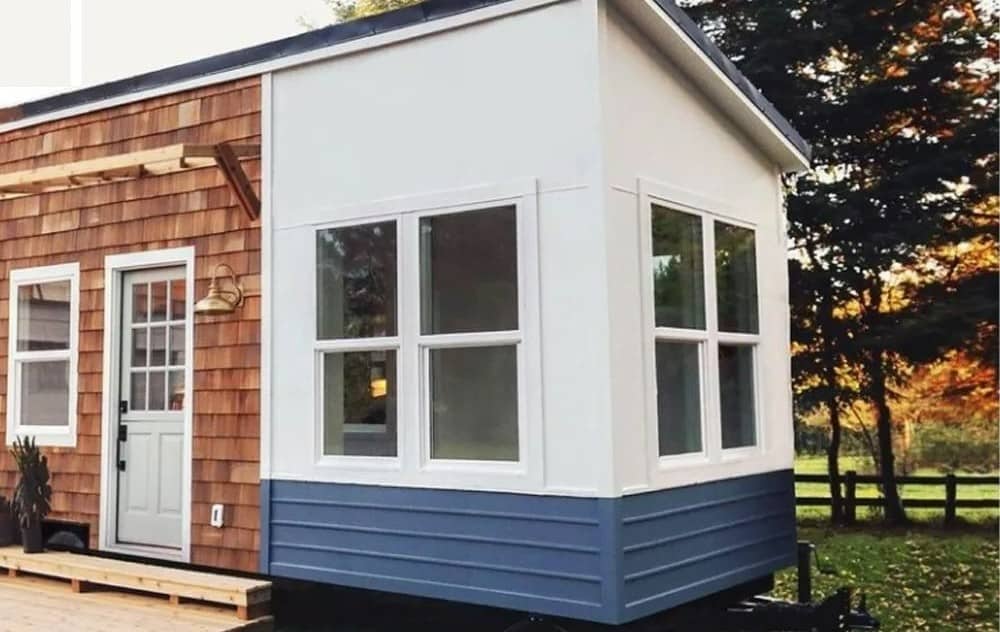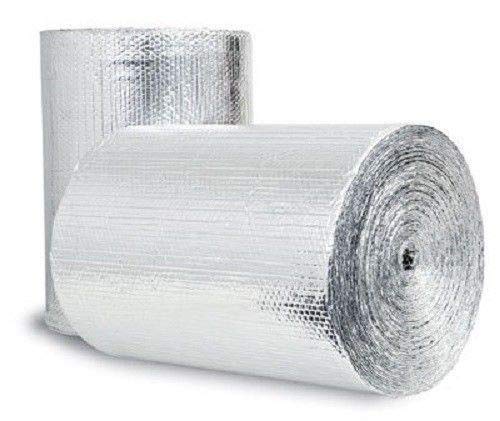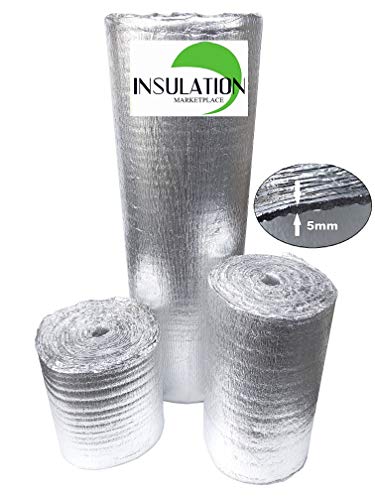If you are looking for a way to improve the insulation in your mobile home, there are several things you can do. One is to add insulation for roof and for the walls. Mobile homes are usually not very well insulated, so this can make a big difference in the comfort of your home.
There are several different ways to insulate the walls of a mobile home. This article discusses the proven and most effective types of insulation.
Contents
5 Best Insulation for Mobile Home Walls – Expert Picks and Guide
- INSULATION MARKETPLACE SmartSHIELD Reflective Insulation – Top Pick
- Owens Corning R-13 Faced Insulation – Runner-Up
- US Energy Products Double Bubble Reflective Foil Insulation – Premium Option
- US Energy Products Radiant Barrier Insulation
- SmartSHIELD Reflective Insulation
If you are a mobile home owner, you know that one of the most important things you can do to protect your home is to make sure it is properly insulated. Mobile homes are especially vulnerable to the elements, and without proper insulation, your home could be at risk for serious damage. Insulation is an important part of protecting your home and ensuring that it will last for many years to come.
1. INSULATION MARKETPLACE SmartSHIELD Reflective Insulation
INSULATION MARKETPLACE SmartSHIELD Reflective Insulation for walls is an excellent product for mobile home walls. It is made of a tough, yet lightweight, material polyethylene, that reflects heat away from the home, keeping it cooler in the summer and warmer in the winter.
There are many benefits to using SmartSHIELD Reflective Insulation, including the fact that it is easy to install and does not require any special tools or equipment. It is non-toxic and safe for the environment. Also it is fire resistant and will not sag or settle over time. In addition, this product can help mobile home owners save money on their energy bills.
- Installed on the outside of the home, so it does not take up any valuable space inside the home
- It is made of closed-cell polyethylene foam that contains no fiberglass, making it safe to work with.
- The foam is coated with a reflective surface that reflects heat, keeping your home cooler in the summer and warmer in the winter.
- It is easy to install, and you can do it yourself with just a few tools.
- It is very affordable, and it will save you money on your energy bills.
2. Owens Corning R-13 Faced Insulation
Owens Corning R-13 Faced Insulation for Mobile home walls is an energy-efficient product that helps keep your home warm in the winter and cool in the summer. It is made of a high-density fiberglass that is faced with an adhesive backing.
The adhesive backing helps the insulation to adhere to the wall and prevents it from slipping or moving. The faced insulation has an R-value of 13, which means it is effective at blocking heat transfer.
Owens Corning R-13 Faced Insulation for Mobile home walls is easy to install. The faced insulation comes in rolls. You can cut the insulation to fit the width of your mobile home walls. The faced insulation is easy to handle and can be cut with a utility knife.
The faced insulation blocks heat transfer, which means your home will stay cooler in the summer and warmer in the winter.
The insulation will also help to reduce noise pollution.
- Fits between the studs in a standard 2×4 frame
- Provides good acoustic properties
- Provides a vapor barrier
- Easy to cut
- May be too much insulation for some applications
3. US Energy Products Double Bubble Reflective Foil Insulation
US Energy Products Double Bubble Reflective Foil Insulation is a product that is specifically designed for mobile home walls. It is easy to install, and it can make a significant difference in the home’s energy efficiency.
US Energy Products Double Bubble Reflective Foil Insulation is an environmentally friendly product. It is made of recycled materials and is free of harmful chemicals. This product is made of two layers of reflective foil that reflect heat away from your home, helping to keep it cooler in the summer and warmer in the winter.
In addition to its energy efficiency benefits, reflective foil insulation also helps to improve the home’s acoustics. It can help to reduce noise from outside, as well as from inside the home. This can make it a great choice for those who live in noisy areas, or who have young children.
- Low cost, low weight
- Flexible, easy to install
- Highly reflective
- Good for use in hot climates
- Not as effective as other insulation materials
4. US Energy Products Radiant Barrier Insulation
US Energy Products Radiant Barrier Insulation is one option for manufactured home owners who want to add radiant barrier insulation to their walls. This product is made from recycled aluminum foil and is designed to be installed on the inside of your mobile home walls.
US Energy Products Radiant Barrier Insulation is easy to install and is an effective way to improve the energy efficiency of your mobile home. This product is also environmentally friendly and is a good choice for mobile home owners who are looking for a green option for their home.
One of the best things about US Energy Products Radiant Barrier Insulation is that it is very easy to install. This product comes in a roll, so all you need to do is cut it to size and then staple or tape it to the inside of your mobile home walls. You don’t need to hire a professional to install this product, so you can save even more money.
Another great thing about US Energy Products Radiant Barrier Insulation is that it is very durable. This product is made from a high quality material that will last for many years. In addition, this product is also fire resistant, so you don’t have to worry about it causing any damage to your home.
- Eliminates drafts and moisture
- Reduces noise
- Reduces your energy bill
- Improves comfort
- Saves energy
- Non-toxic
- Fire resistant
- Some people find the reflective surface to be unattractive
5. SmartSHIELD Reflective Insulation
SmartSHIELD is a new type of reflective insulation for mobile home walls that promises to make homes more comfortable and energy efficient.
This product is different from other insulation products on the market because it is made with a thin layer of aluminum that reflects heat back into the home. This layer of aluminum is bonded to a layer of foam, which helps to trap heat inside the home.
This type of insulation is said to be more effective than traditional fiberglass insulation, and it can also help to reduce noise levels inside the home.
It’s durable and long-lasting. It won’t sag or settle over time, and it won’t deteriorate like other types of insulation.
SmartSHIELD is easy to install, and it can be used in both new and existing homes. This product is an affordable way to make your home more comfortable and energy efficient.
- The product is very affordable.
- Can be used on the exterior or interior of the mobile home
- Improves indoor air quality
- Reduces outside noise
- Acts as a vapor barrier
May not be as effective as other types of insulation in very cold climates
Buyer’s Guide Insulation for Mobile Home Walls
The cost of heating and cooling a home is always a consideration. But for mobile home owners, there is an additional concern. Mobile homes are often less energy-efficient than site-built homes, meaning they can be more expensive to heat and cool. But there are ways to make your mobile home more energy-efficient, and one of the best ways is to add insulation.
Insulation is one of the most important elements in any home, mobile or otherwise. It helps to keep the home cooler in the summer and warmer in the winter, and can also help to cut down on energy costs. There are a number of different types of insulation available for mobile homes, and each has its own set of benefits and drawbacks.
You can also consult with a professional to determine which type of insulation is best for your home.
Features to consider when buying insulation for mobile home walls
When it comes to mobile home insulation, there are many things to consider. The most important factor is the R-value, which measures the insulation’s ability to resist heat flow. One more important aspect to take into account is the type of insulation. Ultimately, the best insulation for your mobile home will depend on your specific needs and budget.
R-value
When considering insulation for your mobile home, it is important to first consider the R-value. The R-value is a measure of the insulation’s ability to resist heat flow. The higher the R-value, the better the insulation will be at keeping your home warm in the winter and cool in the summer.
There are many different types of insulation, each with its own R-value. For example, fiberglass insulation has an R-value of 3.5, while spray foam insulation has an R-value of 7.5.
Type of Insulation
There are a few different types of insulation, and each has its own advantages and disadvantages. The most common types of insulation are fiberglass, cellulose, and spray foam.
Fiberglass is the most common type of insulation. It’s made from glass fibers and is available in batts or rolls. Fiberglass is a good all-around insulation, but it doesn’t have the highest R-value.
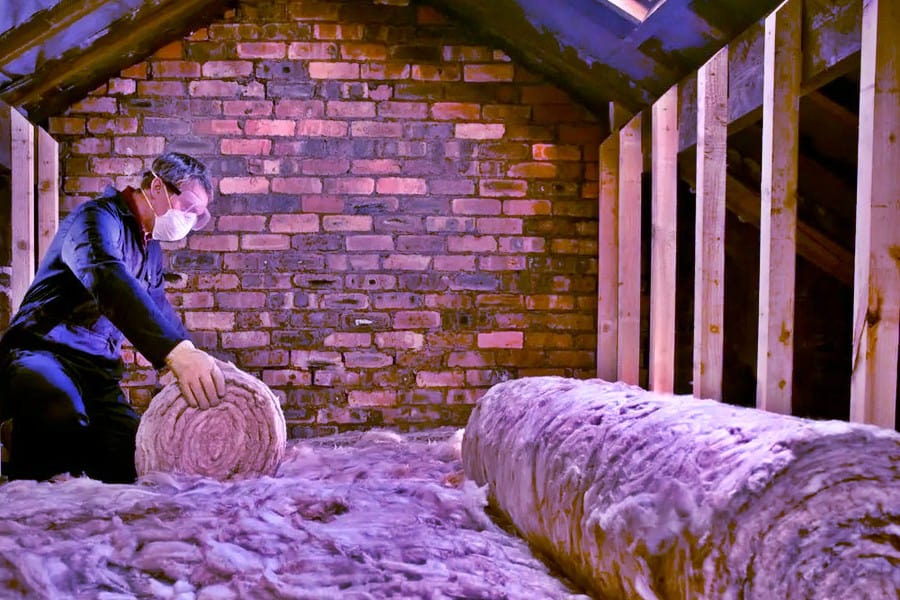
Cellulose is made from recycled paper products. It’s usually available in loose-fill form, which makes it easy to install. Cellulose has a high R-value, but it can settle over time, which reduces its effectiveness.
Spray foam is a newer type of insulation. It’s available in two forms: closed-cell and open-cell. Closed-cell spray foam has a higher R-value than open-cell spray foam, but it’s also more expensive.
Size and Thickness
Another thing to consider is the size and thickness of the insulation. Insulation is available in different widths and thicknesses, so you’ll want to make sure you get the right size for your mobile home.
You’ll also want to consider the thickness of the insulation. The thicker the insulation, the higher the R-value. However, thicker insulation can be more difficult to install.
Cost
Of course, you’ll also want to consider the cost of the insulation. Insulation is available in a wide range of prices, so you’ll want to make sure you get something that’s within your budget.
Deciding on the best insulation for mobile home walls for you
While there are many types of insulation for the walls of mobile homes, the listed types of insulation are the most effective in terms of value for money. They are also easy to install, durable, and provide superior insulation compared to other types of insulation.
FAQ
What are the costs of insulating mobile home walls?
The cost of insulating mobile home walls varies depending on the type of insulation you choose and the size of the home. However, it’s generally a relatively inexpensive project, especially when compared to the benefits it provides.
Are there any special considerations for insulating mobile home walls?
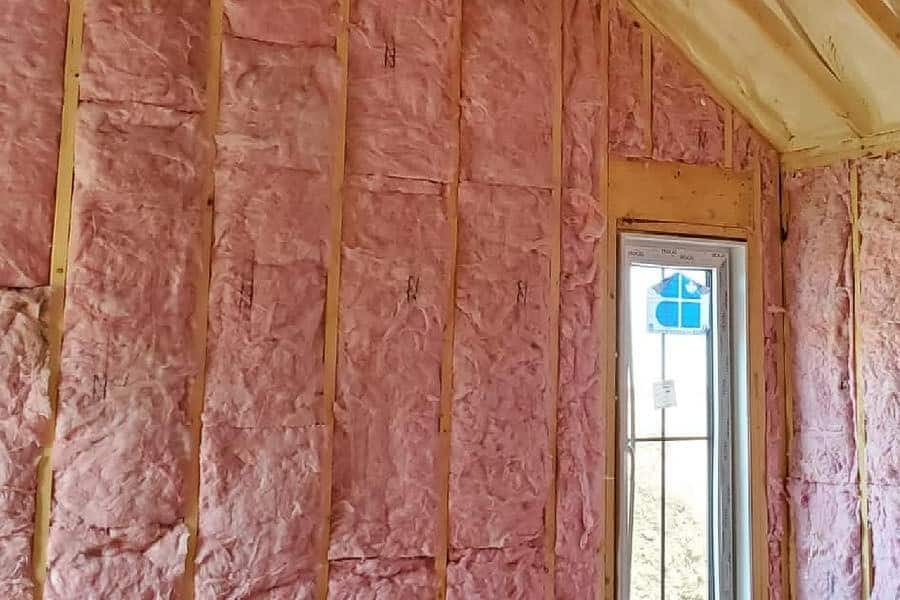
Yes, there are a few things to keep in mind when insulating mobile home walls. First, it’s important to make sure that the insulation is properly rated for the climate in which the home will be located. Second, you’ll need to take into account the fact that mobile homes are often not as well-sealed as traditional homes, so you may need to use a higher R-value insulation.
How to add insulation to mobile home walls?
Adding insulation to mobile home walls is a fairly straightforward process, but there are a few things to keep in mind. First, mobile homes are typically made with thinner walls than traditional stick-built homes, so it is important to choose an insulation that will not add too much bulk. Secondly, many mobile homes have metal siding, so it is important to choose an insulation that will not cause condensation or rust. Finally, it is important to properly seal and insulate around windows and doors to prevent air leaks.
Conclusion
Whichever type of insulation you choose, make sure to seal any gaps or cracks around doors and windows before you begin. This will help to prevent heat from escaping your home in the winter and cool air from entering in the summer. Once your mobile home is properly insulated, you’ll be amazed at how much more comfortable it is all year round.
Best insulation for mobile home walls – Comparison table
| Product name | Reflective Value | Dimensions | Material |
|---|---|---|---|
| INSULATION MARKETPLACE SmartSHIELD | 95% | 48inx25ft | Polyethylene |
| Owens Corning R-13 | - | 15in x 32ft | Fiberglass |
| US Energy Products Double Bubble | 97% | 48in x 100ft | Polyethylene |
| US Energy Products Radiant Barrier | 99.97% | 4in x 250ft | Aluminum |
| SmartSHIELD Reflective Insulation | 97% | 24in x 50ft | Polyethylene, Aluminum |
